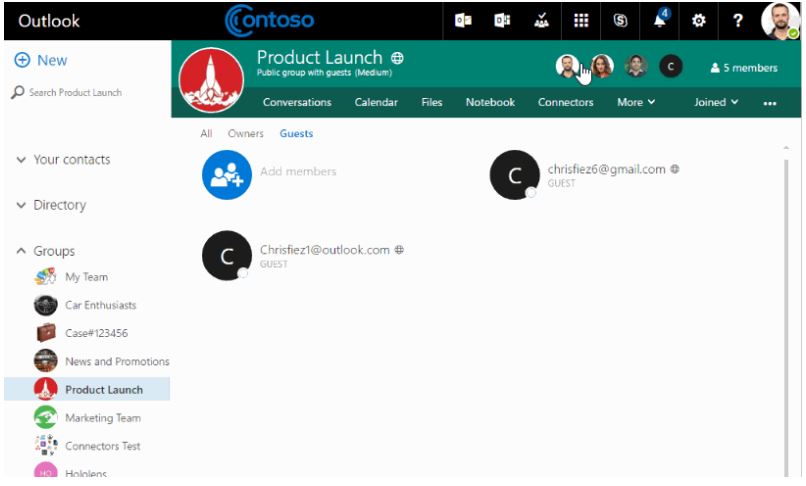Often times, you may have to seek outside help for completing your professional work. You may have to seek help from suppliers, consultants or other professionals who are not part of your company. When sharing information with them, you have to usually go through the arduous task of forwarding every single email related to the project. When the scope of the project is big and there are several people involved, sharing all the information with people outside your organization can be a tiring task and does not directly contribute to the productivity. To reduce productivity loss and save you the arduous task of forwarding e-mails, Microsoft has now added Guest Functionality to its e-mail client, starting with the Web version of Office 365. According to Microsoft Official Blog, this new guest functionality allows group owners to invite people from outside of their organization to get e-mails being sent to the group.

Throwing more light on the new functionality, Microsoft said –
“Once added, guests receive a welcome email, are granted access to group files in SharePoint Online, begin receiving email messages and calendar invites sent to the group, and can access the group in Office on the web and the Outlook Groups mobile application.”
The new functionality is basically a group membership service that provides a single identity for teams in Office 365. Group owners can now add guests to a group in Outlook on the web. Once added, the guests will receive a welcome e-mail. The guests will be granted access to group files in SharePoint Online and will begin to receive e-mail messages and calendar invites sent to the group. Not just this, the guests can also access the group in Office on the web and Outlook Groups mobile application.
You, as a guest, have automatic access to cloud-based file attachments. Also, you have the option to leave the group at any time. The rich visual indicators remind the members of guests participating in the group across all Outlook experiences. This feature will work for both corporate and consumer domains. To access the new feature, the guest user is required to have a Microsoft account.
Microsoft is rolling out the guest access functionality in phases. The feature is expected to be available on other platforms soon.
